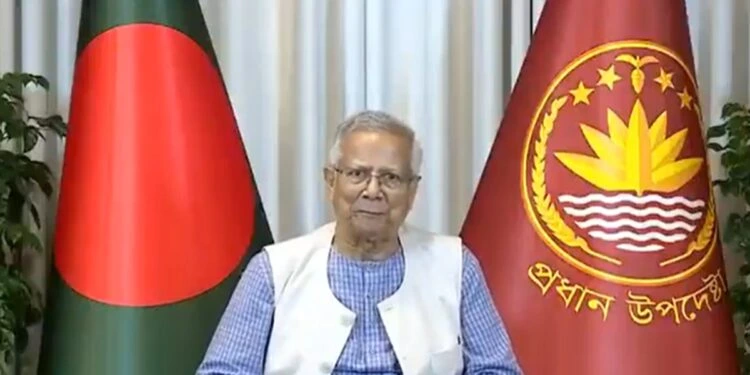Bangladesh’s political landscape appears increasingly fractured after interim Chief Advisor Muhammad Yunus announced that the country’s general elections will be held in February 2026, just ahead of the holy month of Ramadan. While the Bangladesh Nationalist Party (BNP) welcomed the decision as a step toward electoral certainty, the National Citizen Party (NCP) sharply criticised the announcement, calling it premature and lacking necessary political reforms.
The declaration came amid ongoing discussions within the National Consensus Commission of Bangladesh, where parties have been negotiating a roadmap for democratic reform, including the widely anticipated July Charter.
BNP welcomes election
BNP leader Salahuddin Ahmed responded positively to Yunus’s move, saying it would ease national anxiety over the future of democracy. “Many had concerns over the timing of the elections, but this announcement has removed that uncertainty,” he said, adding, “We hope the election will be free, fair, and globally admired. The BNP urges the people to start preparing for it.”
The BNP, which played a key role in the opposition coalition that ousted Sheikh Hasina’s Awami League government last year, sees the early declaration as a sign of political stability returning to the country.
NCP calls it a premature move
However, the NCP strongly disagreed with the announcement, arguing it undermines the spirit of consensus the interim government had promised. In a sharply worded statement, the party said: “The unilateral declaration of an election date without visible reforms or the implementation of the July Charter goes against the spirit of national consensus.”
NCP senior joint convener Samantha Sharmin further criticised Yunus’s focus on election timing over meaningful structural change. “One party has been obsessed with setting a date while ignoring structural issues,” she said, adding, “Without implementing the July Charter in full, it’s hard to imagine an election that is both fair and acceptable.”
Yunus defends decision, stresses reform dialogue
Announcing the decision on Tuesday, Yunus stated he would soon write to the Election Commission to begin preparations for the February 2026 polls. He acknowledged the divergent views expressed during the second round of dialogue within the National Consensus Commission but reaffirmed his administration’s commitment to electoral reform.
“We are hopeful that, based on this dialogue, political parties will soon sign the July Charter and agree on a clear plan for its implementation,” Yunus said, striking a tone of cautious optimism.
A nation in political flux
Bangladesh has been navigating a tense transition since Hasina was ousted in 2024 following months of mass protests and civil unrest. Although a broad opposition alliance initially united to bring down the Awami League regime, internal divisions have since emerged—particularly around the timing and conditions for holding new elections.
The July Charter, a proposed roadmap for electoral and governance reforms, remains central to these debates. While some parties, like the BNP, appear willing to proceed with elections alongside ongoing reform discussions, others like the NCP argue that holding polls without foundational changes could erode public trust.
With just over 18 months until the proposed elections, Yunus’s administration faces mounting pressure to balance the demand for urgency with the need for legitimacy—a tightrope that will test the country’s fragile political consensus.
Long or Short, get news the way you like. No ads. No redirections. Download Newspin and Stay Alert, The CSR Journal Mobile app, for fast, crisp, clean updates!
App Store – https://apps.apple.com/in/app/newspin/id6746449540
Google Play Store – https://play.google.com/store/apps/details?id=com.inventifweb.newspin&pcampaignid=web_share


